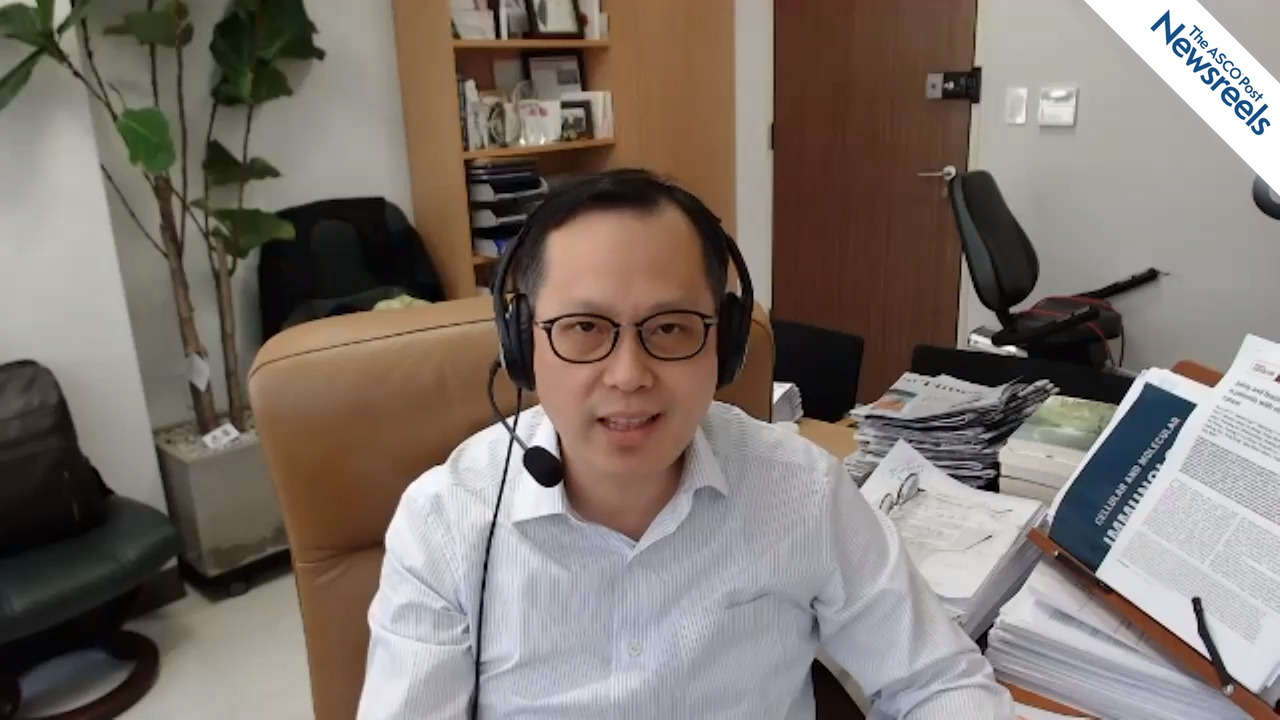Grant A. McArthur, MBBS, PhD, on Melanoma: IMspire150 Trial of Atezolizumab, Cobimetinib, and Vemurafenib
AACR Virtual Annual Meeting 2020 I
Grant A. McArthur, MBBS, PhD, of the Peter MacCallum Cancer Centre, discusses phase III results from a study of previously untreated patients with BRAF V600 mutation–positive advanced melanoma. His team evaluated whether combining vemurafenib and cobimetinib with atezolizumab improved the durability of responses compared with targeted therapies plus placebo (Abstract CT012).
The ASCO Post Staff
Steven J. O’Day, MD, of the John Wayne Cancer Institute, discusses phase II results for the combination of pembrolizumab with a novel innate immune activator, Imprime PGG, as second-line treatment for patients with metastatic triple-negative breast cancer ( Abstract CT073).
The ASCO Post Staff
Byoung Chul Cho, MD, PhD, of Yonsei Cancer Center and Severance Hospital, discusses the STK11 and KEAP1 mutations in non–small cell lung cancers, and their relationship to the efficacy of pembrolizumab monotherapy vs platinum-based chemotherapy as first-line treatment for PD-L1–positive advanced disease (Abstract CT084).
The ASCO Post Staff
Nickolas Papadopoulos, PhD, of Johns Hopkins Medicine, discusses a first-of-its-kind prospective study that evaluated a screening blood test in more than 10,000 older women with no history of cancer. The test, called DETECT-A, identified 10 different cancer types, 65% of which were early-stage disease (Abstract CT022).
The ASCO Post Staff
Lajos Pusztai, MD, PhD, of Yale Cancer Center, discusses study results on durvalumab in combination with olaparib and paclitaxel as neoadjuvant treatment in patients with high-risk HER2-negative stage II/III breast cancer. Compared with patients who received chemotherapy alone, the combination improved pathologic complete response, even in women with triple-negative breast cancer (Abstract CT011).
The ASCO Post Staff
Edward B. Garon, MD, of the University of California, Los Angeles, David Geffen School of Medicine, discusses results from a small study in METex14-mutated advanced non–small cell lung cancer and brain metastases. The trial suggested capmatinib showed antitumor activity in the brain, regardless of prior therapy, and a manageable safety profile (Abstract CT082).





